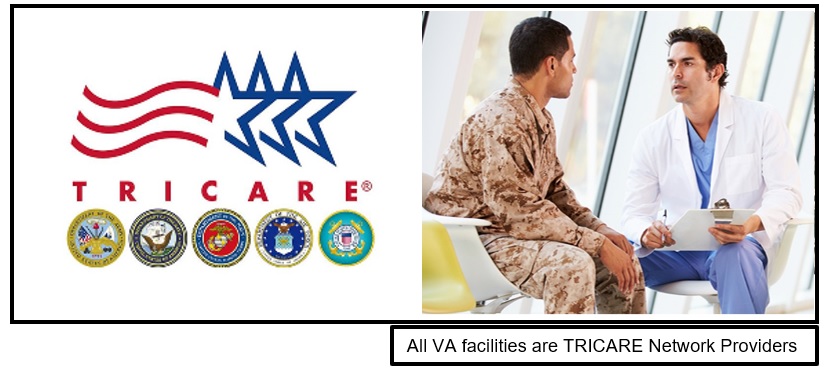If you’re a beneficiary of TRICARE, the health care program for active duty and retired members of the uniformed services, you may be wondering if it’s considered a group health plan (GHP). Understanding the classification of TRICARE is crucial, especially when it comes to Medicare enrollment and premium surcharge rollbacks. In this article, we’ll explore the intricacies of TRICARE’s classification and provide you with all the information you need to make informed decisions.
TRICARE: A Group Health Plan for Specific Beneficiaries
According to the Social Security Administration’s Program Operations Manual System (POMS), TRICARE is considered a group health plan (GHP) for specific purposes, such as Special Enrollment Periods (SEP) and premium surcharge rollbacks. However, these provisions apply only to beneficiaries whose coverage under TRICARE is based on active duty military status.
In other words, if you’re covered under TRICARE due to your own or your spouse’s active duty military service, TRICARE is classified as a GHP for you. This classification allows you to enroll (or reenroll) in Medicare Part B during any month while you’re covered under TRICARE or during the 8-month period following the last month of TRICARE coverage based on active duty military status.
Let’s illustrate this with an example:
Susan Miller is covered under TRICARE based on her husband’s active duty service in the Air Force. She can enroll in Medicare Part B anytime while covered under TRICARE or during the 8-month period following the last month of TRICARE coverage based on her husband’s active duty military status.
However, if Susan’s coverage under TRICARE is based on her husband’s past military service (which is generally the case for retirees), she is not eligible for a Special Enrollment Period or premium surcharge rollback because TRICARE is not considered a GHP for this purpose.
Evidence of TRICARE Coverage
When it comes to providing evidence of TRICARE coverage for an SEP or premium surcharge rollback, the Department of Defense (DoD) will issue a letter verifying the beneficiary’s eligibility for TRICARE benefits. This letter will also provide the dates of coverage.
If you need to obtain this letter as proof of coverage, you can contact the DoD’s Defense Enrollment Eligibility Reporting System (DEERS) at the following numbers:
- In California: 1-800-334-4162
- In Alaska or Hawaii: 1-800-527-5602
- All other states: 1-800-538-9552
It’s important to note that the standard Form HCFA-L564, typically used to obtain evidence of coverage for other GHPs, will not be used for TRICARE.
Understanding TRICARE and Other Health Insurance (OHI)
TRICARE is designed to work with other health insurance (OHI) plans, such as employer-sponsored or private insurance programs. By law, TRICARE pays after all other health insurance, except for:
- Medicaid
- TRICARE supplements
- State Victims of Crime Compensation Programs
- Other Federal Government Programs identified by the Director, Defense Health Agency (e.g., Indian Health Service)
This means that if you have OHI in addition to TRICARE, your OHI processes your claim first, and then you or your doctor files a claim with TRICARE for any remaining covered costs.
It’s crucial to keep your OHI information updated with your TRICARE contractors and doctors to ensure proper coordination of benefits and timely processing of claims. If TRICARE pays first and later discovers that you had OHI, they will take back any payments made and only reprocess your claim after your OHI does.
Active Duty Service Members and OHI
Active duty service members can use OHI in certain circumstances and when in compliance with Department of Defense (DoD) and Service regulations. However, it’s important to note the following:
- You’re responsible for all costs associated with using OHI.
- TRICARE won’t act as a second payer, meaning there’s no coordination of benefits between your OHI and TRICARE.
- Your OHI may have exclusions for military duty status, which could lead to claim denials or recoupments if you fail to disclose your military status.
- You must comply with Service regulations if you decide to seek care from a civilian provider, including providing all medical records to your current primary care manager.
- Unauthorized care may affect your fitness for duty status.
It’s essential to consider these factors and consult with your Service Personnel if you have questions about how using OHI may affect you as an active duty service member.
TRICARE: A Valuable Health Care Option
TRICARE is a comprehensive health care program that provides coverage to active duty and retired members of the uniformed services, as well as their families. Whether TRICARE is considered a GHP for you depends on your specific circumstances, such as your active duty status or retirement status.
By understanding TRICARE’s classification and how it interacts with other health insurance and Medicare, you can make informed decisions and ensure you receive the benefits you’re entitled to. Remember to keep your information up-to-date with your TRICARE contractors and doctors, and don’t hesitate to reach out to the appropriate authorities for assistance or clarification.
Which is better, VA Health Care or TRICARE | VA Health Care and TRICARE Comparison | theSITREP
FAQ
Is TRICARE a group health plan for Medicare?
Is TRICARE Group a health plan?
What type of insurance is TRICARE?
Is TRICARE a HMO or PPO?

